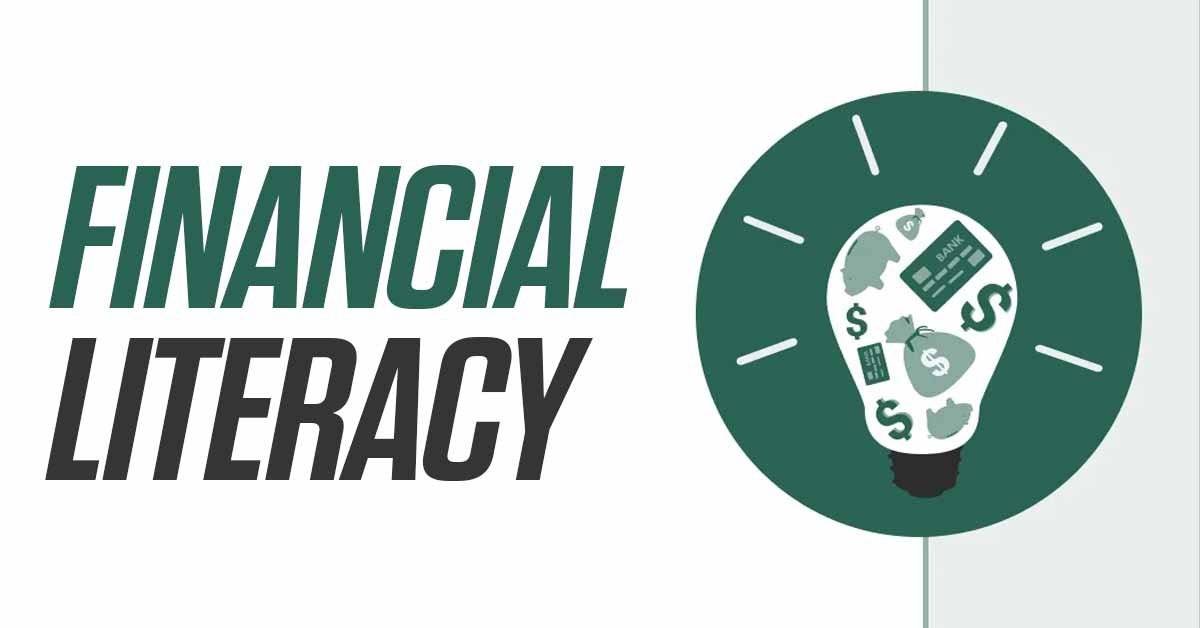In today’s complex and ever-changing economic landscape, financial literacy has become more crucial than ever. With the increasing availability of financial products, services, and information, individuals must understand how to manage their finances effectively. Financial literacy empowers people to make informed decisions, avoid financial pitfalls, and achieve long-term financial stability. This detailed blog explores the importance of financial literacy in today’s economy, its benefits, and how to improve it.
What is Financial Literacy?
Financial literacy is the ability to understand and apply various financial skills, including personal financial management, budgeting, investing, and planning for retirement. It encompasses a range of concepts such as:
- Budgeting: Creating and maintaining a plan for how to spend and save money.
- Saving: Setting aside money for future needs or emergencies.
- Investing: Using money to generate returns over time, such as through stocks, bonds, or real estate.
- Credit Management: Understanding how to use and manage credit responsibly.
- Debt Management: Knowing how to handle and pay off debts.
- Insurance: Protecting against financial loss through various types of insurance.
Why Financial Literacy is Important
1. Better Financial Decision-Making
Financial literacy equips individuals with the knowledge to make informed financial decisions. Understanding the basics of interest rates, credit scores, investment options, and risk management can help people choose the best financial products and services for their needs.
2. Avoiding Debt and Financial Pitfalls
A solid understanding of financial principles helps individuals avoid common financial pitfalls such as excessive debt, high-interest loans, and credit card misuse. Financially literate individuals are more likely to recognize predatory lending practices and avoid scams.
3. Building Wealth and Financial Security
Financial literacy encourages sound financial habits such as saving, investing, and budgeting. These habits are essential for building wealth and achieving financial security. Understanding compound interest and the importance of early investing can significantly impact long-term financial growth.
4. Planning for the Future
Financial literacy is vital for effective retirement planning, estate planning, and preparing for major life events such as buying a home or funding education. It enables individuals to set realistic financial goals and create strategies to achieve them.
5. Enhancing Economic Stability
A financially literate population contributes to the overall economic stability of a country. When individuals manage their finances well, they are less likely to default on loans, face bankruptcy, or rely on government assistance. This stability helps create a more resilient economy.
6. Improving Quality of Life
Financial stress can negatively impact mental and physical health. Financial literacy reduces stress by providing individuals with the tools to manage their finances effectively, leading to an improved quality of life.
The Benefits of Financial Literacy
1. Increased Savings
Financial literacy promotes the habit of saving. Individuals who understand the importance of saving are more likely to set aside money for emergencies, retirement, and other future needs.
2. Better Investment Choices
Knowledgeable investors can make informed decisions about where to invest their money, leading to better returns and reduced risk. Understanding investment principles helps individuals diversify their portfolios and plan for long-term financial growth.
3. Improved Credit Scores
Financial literacy helps individuals understand how credit works and the importance of maintaining a good credit score. Good credit scores lead to better loan terms, lower interest rates, and increased access to credit when needed.
4. Reduced Financial Stress
Managing finances effectively reduces the stress associated with financial uncertainty. Financial literacy empowers individuals to take control of their financial situation, leading to greater peace of mind.
5. Empowerment and Confidence
Financial literacy provides a sense of empowerment and confidence in managing money. Individuals feel more in control of their financial future and are better prepared to handle financial challenges.
How to Improve Financial Literacy
1. Education and Training
One of the most effective ways to improve financial literacy is through education and training. Schools, colleges, and community organizations can offer courses and workshops on personal finance. Online resources, such as blogs, webinars, and financial literacy programs, are also valuable tools.
2. Use Financial Tools and Apps
There are numerous financial tools and apps available that can help individuals manage their finances. Budgeting apps, investment calculators, and financial planning tools provide valuable insights and make it easier to track and manage money.
3. Seek Professional Advice
Financial advisors and planners can provide personalized advice and guidance on managing finances. They can help individuals create budgets, plan for retirement, invest wisely, and manage debt effectively.
4. Read Financial Literature
Books, articles, and blogs on personal finance are excellent resources for improving financial literacy. Reading about different financial topics can provide new insights and strategies for managing money.
5. Practice Good Financial Habits
Practicing good financial habits is essential for improving financial literacy. Creating and sticking to a budget, saving regularly, investing wisely, and managing debt responsibly are all important practices.
6. Engage in Financial Discussions
Talking about money and financial management with friends, family, and colleagues can provide new perspectives and ideas. Engaging in financial discussions helps reinforce financial concepts and encourages the sharing of best practices.
Conclusion
Financial literacy is a critical skill in today’s economy. It empowers individuals to make informed financial decisions, avoid debt, build wealth, and plan for the future. By improving financial literacy through education, tools, professional advice, and good financial habits, individuals can achieve greater financial stability and security. As financial literacy becomes more widespread, it contributes to the overall economic well-being and stability of society.
Improving financial literacy is essential for navigating today’s complex economy. By understanding financial concepts and managing personal finances effectively, individuals can achieve financial stability and security, leading to a better quality of life and a stronger economy.
